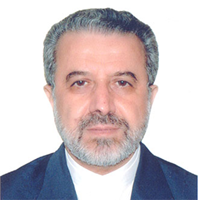Diagnosis and treatment of thyrotoxicosis during pregnancy and lactation
Author(s):
Abstract:
Background And Aim
Poorly treated or untreated maternal overt hyperthyroidism may affect pregnancy outcome. Thyroid dysfunction and hyperthyroidism is present in about 0.3% and 2-3% of pregnancies respectively. Thyroid hyperfunction and hypofunction are more prevalent and usually go unrecognized. If thyroid dysfunction remained undiagnosed and has not been treated appropriately, would result in serious adverse pregnancy outcomes and treat both mother and her fetus. The aim of this review is to mention many aspects of hyperthyroidism in pregnancy and lactation in depth. Materials And Methods
Literature review was performed using MEDLINE between years 1960 and 2010, with the terms “Hyperthyroidism and pregnancy”, “Anti-thyroid drug and pregnancy”, “Radioiodine and pregnancy”, “Hyperthyroidism and lactation”, “Anti-thyroid drug and lactation”, both separately and in conjunction with the terms “fetus”, “neonate” and “maternal”. We selected Proper study design of survey, case control and cohort studies, and clinical trials and review papers if the authors had at least four articles of their own in the list of references of review paper. The strategy used to search for articles was developed with the assistance of a research librarian. Results
Antithyroid drugs are the main therapy of maternal hyperthyroidism during the lactation. All forms of antithyroid drugs can be used in pregnancy. As there are some reports regarding teratogenicity of methimazole (MMI), Propylthiouracil (PTU) is preferred in the first trimester and should be replaced by MMI after this trimester. Radioiodine is absolutely contraindicated for treatment of hyperthyroidism in pregnancy. Subtotal thyroidectomy in second trimester is indicated if hyperthyroidism is uncontrolled. MMI is the mainstay of the treatment of postpartum hyperthyroidism, in particular during lactation. Conclusion
Management of hyperthyroidism during pregnancy requires special considerations because maternal thyroid disease could have adverse effects on the mother, fetus and neonate.Language:
Persian
Published:
Researcher Bulletin of Medical Sciences, Volume:15 Issue: 6, 2011
Page:
234
https://magiran.com/p836241
دانلود و مطالعه متن این مقاله با یکی از روشهای زیر امکان پذیر است:
اشتراک شخصی
با عضویت و پرداخت آنلاین حق اشتراک یکساله به مبلغ 1,390,000ريال میتوانید 70 عنوان مطلب دانلود کنید!
اشتراک سازمانی
به کتابخانه دانشگاه یا محل کار خود پیشنهاد کنید تا اشتراک سازمانی این پایگاه را برای دسترسی نامحدود همه کاربران به متن مطالب تهیه نمایند!
توجه!
- حق عضویت دریافتی صرف حمایت از نشریات عضو و نگهداری، تکمیل و توسعه مگیران میشود.
- پرداخت حق اشتراک و دانلود مقالات اجازه بازنشر آن در سایر رسانههای چاپی و دیجیتال را به کاربر نمیدهد.
In order to view content subscription is required
Personal subscription
Subscribe magiran.com for 70 € euros via PayPal and download 70 articles during a year.
Organization subscription
Please contact us to subscribe your university or library for unlimited access!


